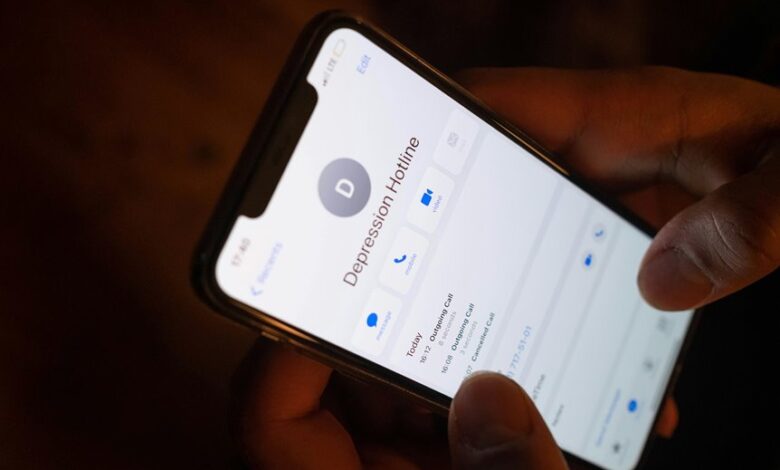24-Hour Help Hotline Numbers: 2065826344, 2085153325, 2096458266, 2103618931, 2103978578, 2106402196

The availability of 24-hour help hotlines is crucial for those in need of immediate support. Each hotline number—2065826344, 2085153325, 2096458266, 2103618931, 2103978578, and 2106402196—caters to specific challenges, offering tailored assistance. This accessibility can make a significant difference in moments of crisis. Understanding how to connect with these resources can empower individuals to take the first step toward healing and support. What happens when a call is made?
Understanding the Importance of 24-Hour Help Hotlines
The presence of 24-hour help hotlines plays a crucial role in providing immediate support to individuals in crisis.
These services exemplify hotline effectiveness, offering emotional support when it is needed most. They empower individuals to express their feelings openly, fostering a sense of safety and freedom.
Through compassionate listening and guidance, hotlines serve as vital lifelines, helping callers navigate their challenges with dignity.
Overview of Each Hotline Number
Each hotline serves a specific purpose, offering crucial support tailored to various needs, from mental health to crisis intervention.
Their availability around the clock ensures that help is accessible whenever it is needed most, providing a lifeline during difficult times.
Understanding these resources can empower individuals to seek the assistance they deserve.
Purpose of Each Hotline
Hotline numbers serve as vital lifelines for individuals in need, providing access to essential support and resources.
Each hotline is designed to address specific concerns, enhancing hotline effectiveness through tailored assistance.
These numbers connect callers to dedicated support networks, fostering a sense of community and understanding.
Availability and Accessibility
While help is often just a phone call away, understanding the availability and accessibility of various hotline numbers can significantly enhance the support individuals receive. Each hotline offers unique services, ensuring that people can find the assistance they need at any time.
| Hotline Number | Service Availability |
|---|---|
| 2065826344 | 24/7 Support |
| 2085153325 | Crisis Assistance |
| 2096458266 | Emotional Support |
How to Reach Out for Help
How can someone find the courage to reach out for help when faced with overwhelming challenges?
Embracing help-seeking behavior can be transformative. Here are some supportive steps to consider:
- Acknowledge the need for emotional support
- Identify trusted individuals or resources
- Express feelings openly
- Choose a comfortable method of communication
- Remember that seeking help is a sign of strength
Each step fosters freedom and connection.
What to Expect When You Call
When someone reaches out for help, they can expect a compassionate and understanding response.
Call experiences may vary, but hotline expectations generally include attentive listening and validation of feelings.
Trained professionals aim to create a safe space, offering guidance without judgment.
This supportive environment empowers individuals to explore their thoughts and emotions, fostering a sense of freedom and clarity in their journey toward healing.
Additional Resources for Support
After connecting with a hotline, individuals may seek additional avenues for ongoing support.
Exploring various resources can enhance their journey toward healing and empowerment.
- Local support groups
- Online therapy platforms
- Mental health apps
- Community workshops
- Educational webinars
These options provide valuable connections, fostering a sense of belonging and encouraging personal growth.
Ultimately, helping individuals regain their freedom and strength.
Encouraging Conversations About Mental Health
Encouraging conversations about mental health is essential for breaking the stigma that often surrounds these topics.
Open dialogue can foster understanding and support, allowing individuals to feel less isolated in their experiences.
Breaking Stigma Together
Mental health stigma often prevents individuals from seeking the help they need, yet open conversations can foster understanding and acceptance.
- Encourage sharing personal experiences
- Normalize discussions around mental health
- Challenge misconceptions and stereotypes
- Promote stigma reduction initiatives
- Support those in need of help
Together, these actions can create a supportive environment that empowers individuals to embrace their mental health journeys freely.
Open Dialogue Importance
While many individuals may feel hesitant to discuss their mental health, fostering open dialogue is crucial for breaking down barriers and promoting understanding.
Open communication allows people to share experiences and seek emotional support, creating a safe environment for expression.
Encouraging these conversations empowers individuals to confront their challenges, enhancing their well-being and fostering a community where mental health is prioritized and valued.
Resources for Support
Creating an environment where individuals feel comfortable discussing their feelings and experiences is supported by a variety of resources that facilitate these important conversations.
These resources promote emotional resilience and peer support:
- Support groups for shared experiences
- Online forums for anonymous discussions
- Counseling services for professional guidance
- Workshops on mental health awareness
- Hotlines offering immediate assistance
Together, they empower individuals to seek help and foster open dialogue.
Conclusion
In a world where storms can suddenly darken our skies, these 24-hour help hotlines serve as guiding lighthouses, illuminating the path to safety and support. Just as sailors rely on lighthouses to navigate treacherous waters, individuals facing life’s challenges can find solace in these vital numbers. By reaching out, they embrace the courage to seek help, reminding us all that even in our darkest moments, there is always light ahead, waiting to guide us home.




